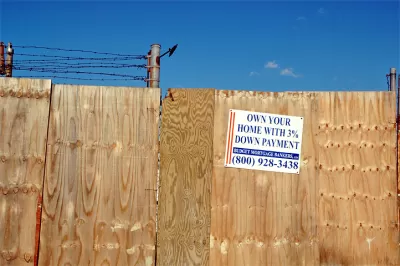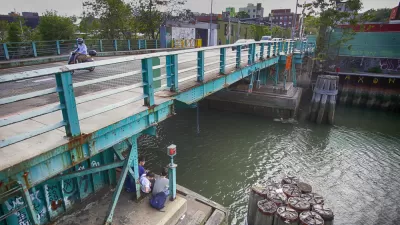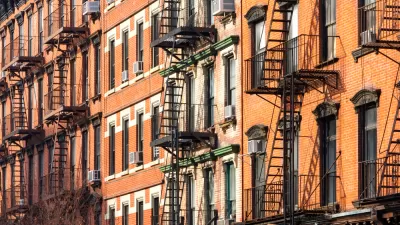As the supply of affordable housing in Gowanus continues to diminish, a new coalition demands that any rezoning plan fill the gaps.

As New York considers extending its rezoning efforts to the largely industrial neighborhood of Gowanus, non-profits have convened the Gowanus Neighborhood Coalition for Justice to represent the needs of low-income tenants and residents of public housing.
A new report by the nonprofit Fifth Avenue Committee found that 33 percent of housing in Gowanus is affordable — but those numbers are declining. Between 2007 and 2014, the number of rent-stabilized apartments dropped 22 percent in Gowanus, Boerum Hill, Carroll Garden and Park Slope thanks to market-rate development in those areas. That compares to a 6 percent drop citywide.
To counteract these trends, the coalition demands that "any rezoning, large land use action or public investment" be organized around five basic principles:
1. Advance racial and economic justice
2. Create real affordable housing and protect tenants from displacement
3. Promote environmental justice
4. Protect local businesses where we work and shop
5. Uplift the culture and community of long-time residents
Strategies to meet these goals—including workforce development, community policing, and racial desegregation—are outlined in the statement.
Gowanus community groups have advocated protections for longtime residents and small businesses since at least fall 2016, with the launch of the Bridging Gowanus community planning process.
FULL STORY: Gowanus lost 22% of its rent-stabilized housing between 2007 and 2014: study

Alabama: Trump Terminates Settlements for Black Communities Harmed By Raw Sewage
Trump deemed the landmark civil rights agreement “illegal DEI and environmental justice policy.”

Study: Maui’s Plan to Convert Vacation Rentals to Long-Term Housing Could Cause Nearly $1 Billion Economic Loss
The plan would reduce visitor accommodation by 25% resulting in 1,900 jobs lost.

Why Should We Subsidize Public Transportation?
Many public transit agencies face financial stress due to rising costs, declining fare revenue, and declining subsidies. Transit advocates must provide a strong business case for increasing public transit funding.

Paris Bike Boom Leads to Steep Drop in Air Pollution
The French city’s air quality has improved dramatically in the past 20 years, coinciding with a growth in cycling.

Why Housing Costs More to Build in California Than in Texas
Hard costs like labor and materials combined with ‘soft’ costs such as permitting make building in the San Francisco Bay Area almost three times as costly as in Texas cities.

San Diego County Sees a Rise in Urban Coyotes
San Diego County experiences a rise in urban coyotes, as sightings become prevalent throughout its urban neighbourhoods and surrounding areas.
Urban Design for Planners 1: Software Tools
This six-course series explores essential urban design concepts using open source software and equips planners with the tools they need to participate fully in the urban design process.
Planning for Universal Design
Learn the tools for implementing Universal Design in planning regulations.
Smith Gee Studio
Alamo Area Metropolitan Planning Organization
City of Santa Clarita
Institute for Housing and Urban Development Studies (IHS)
City of Grandview
Harvard GSD Executive Education
Toledo-Lucas County Plan Commissions
Salt Lake City
NYU Wagner Graduate School of Public Service





























